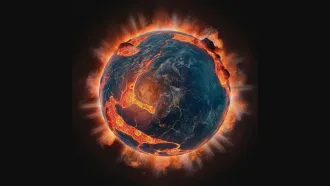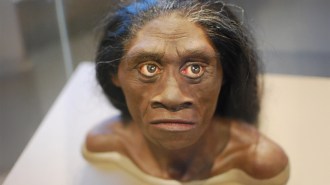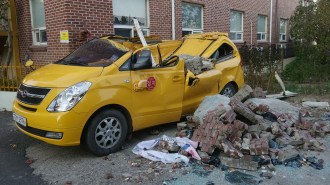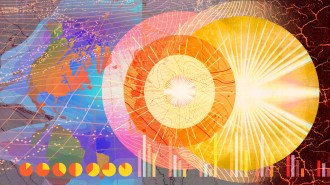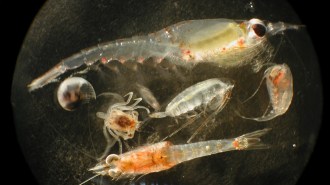50 years ago, mysterious glass hinted at Earth’s violent past
Excerpt from the August 11, 1973 issue of Science News
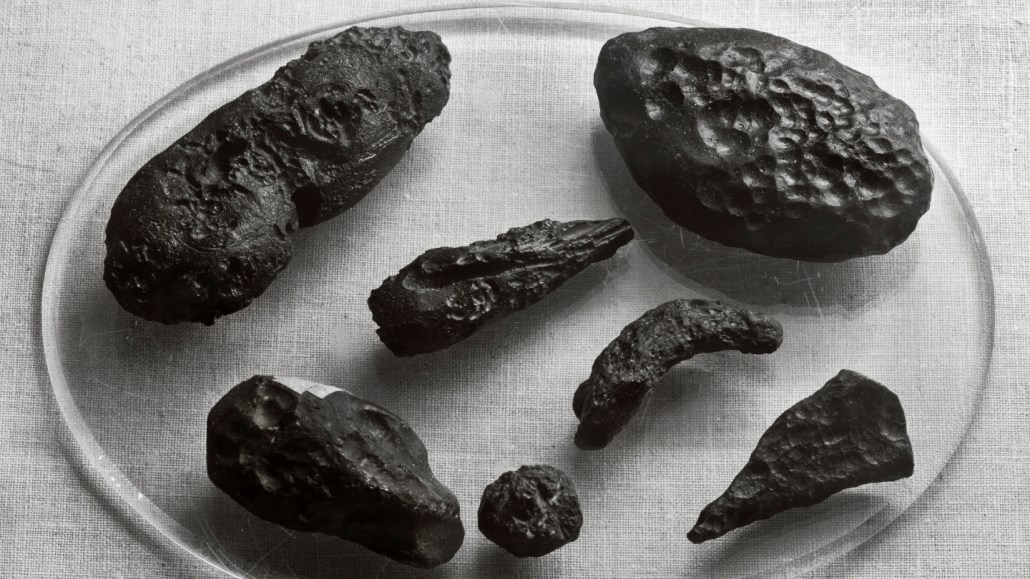
Like Hansel and Gretel followed a trail of breadcrumbs, scientists have followed glassy particles called tektites (some shown) to the sites of major meteorite impacts around the world.
rep0rter/iStock/Getty Images Plus

Microtektites found in Caribbean may shed light on tektite origin — Science News, August 11, 1973
Though their origin remains a mystery to scientists, huge strewn fields of tektites have been found in widely separated areas of the world…. Microtektites have now been found in the Caribbean, and the characteristics of these newly found specimens may ultimately shed some light on the question of tektite origin….
Some believe that the tektites come from the moon. They feel that tektites were formed when an asteroid hit the moon, splashing droplets of molten rocks so high that they escaped the moon’s gravity and fell to Earth. However, mass spectrographic analysis of lunar samples shows that elements in the lunar crust are far different from tektites. The tektites are more like the elements in the continental crust of the Earth itself. [Planetary scientist Billy P. Glass] feels that if the parent material of [newfound] microtektites can be determined … the discovery of the origin of the glassy objects might quickly follow suit.
Update
Glass surmised that these geologic curiosities have earthly origins, based on his and his colleagues’ analyses of the North American strewn field — a blanket of glassy particles that covers much the southeastern United States and Caribbean and dates to about 35 million years ago. But it took another 20 years for researchers to identify the source.
In 1994, tektites and concentric fault lines in southern Virginia revealed an 85-kilometer-wide impact crater under Chesapeake Bay. Science News reported that “a structure this size would rank as the largest crater in the United States” and would be among the largest on Earth (SN: 8/20/94). What’s more, when the space rock slammed into our planet, the collision created intense seismic waves that bent microfossils into odd shapes, scientists reported nearly a decade later (SN: 6/11/03).
Taken together with evidence from Earth’s three other major strewn fields, the findings helped confirm that tektites form when a bolide slams into our planet with enough force to blast liquified chunks of Earth’s crust into the atmosphere. These chunks then harden into raindrop-, barbell- and ravioli-shaped particles as they fall back to the surface.
So far, researchers have linked three of the four major strewn fields with impact craters. The North American strewn field is tied to the Chesapeake crater in Virginia, the central European strewn field is associated with the Ries crater in Germany, and the Ivory Coast strewn field originates from the Bosumtwi crater in Ghana. The holdout is the Australasian strewn field, which is the largest known and covers about 10 percent of Earth’s surface.

Scientists recently got a break in the case. Analyses of tektites found in Thailand and other geologic evidence as well as computer simulations suggest a probable source. A 2-kilometer-wide meteorite struck Laos about 800,000 years ago and flung debris across Asia, Australia and Antarctica, scientists reported in 2020 in the Proceedings of the National Academy of Sciences.
The resulting crater, which may be about 13 kilometers wide by 17 kilometers long, was eventually buried under volcanic material, the team contends. Verifying this hypothesis will require drilling through lava fields to see if the rocks underneath show melting and shattering — both hallmarks of an impact.
To a collector, the curiosities found around an impact crater are full of wonder and poetry. To a planetary scientist, these small pieces of evidence may yet open big windows into Earth’s geologic past.
